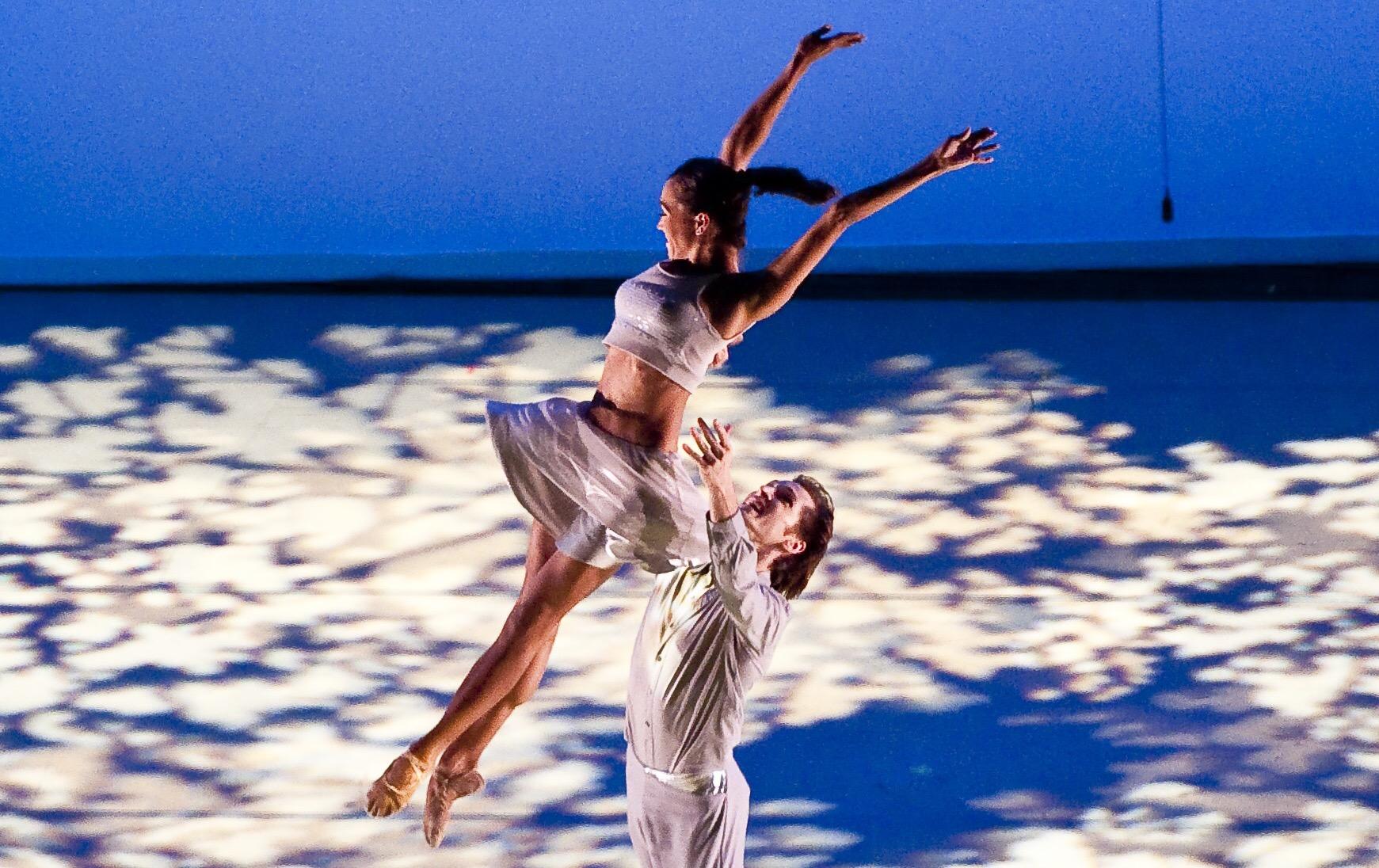Stoner Winslett, Windows, and taking Richmond Ballet back to the future
Richmond Ballet’s founder and leader gets excited about the revival of her signature work, performing Saturday, November 7th and Sunday, November 8th at Carpenter Theatre.

This weekend, Richmond Ballet performs George Balanchine’s The Four Temperaments alongside Stoner Winslett’s Windows. Bonus: the Richmond Symphony will be performing the music! Seeing ballet is wonderful, but experiencing it to a live soundtrack is like suddenly seeing color after years of only black-and-white.
It’s all very exciting, for various reasons!
Balanchine, the father of classical ballet, choreographed this exploration of the four psychological humors: “Melancholic,” “Sanguinie,” “Phlegmatic,” and “Choleric.” This theory comes from Hippocrates, who felt that there were four liquids that made us confident, bitchy, broody, and chill.

From Wikipedia: “The four temperaments – (L-R) choleric, melancholic, sanguine and phlegmatic – on the wall of a house at the corner of Am Dornbusch and Eschersheimer Landstraße in Dornbusch, Frankfurt am Main, Germany. Artist unknown. The picture is a composite of four close-ups.”
Scored by Paul Hindemith, The Four Temperaments is about structure and stretched the boundaries of ballet when it debuted in 1946.
If Balanchine is a guy to whom we should constantly be paying homage, Windows is a piece about paying homage! Stoner Winslett, Richmond Ballet’s founder and artistic director, originally choreographed a three-piece work in 1980 during her time as a dancer at Smith College. Each section represents a particular period. “Windows looks back at the heritage and traditions of ballet,” says Winslett. “The past, where the ballet has come from, and then in the fourth section it looks forward to a new millennium.”
That last section was done in 1999, when she received a grant to commemorate her 20th season at Richmond Ballet. She found a composer, Jonathan Romeo, to write a new score for the section that reinterpreted Paganini through a 21st-century lens. “It’s sort of like our mission for the Richmond Ballet,” Winslett explains. “We’re looking forward and seeing where the world is going, but at the same time we’re about the preservation of the classical tradition. That’s why we do Swan Lake, it’s why we teach classical ballet, but we also commission new works and teach modern and jazz in the school.”
I haven’t seen the piece, although I did see a rehearsal a couple of weeks ago. The younger trainees dance with the company members, which heightens the feeling of there being a collaboration between yesterday, today, and tomorrow. (Not that any of you are yesterday’s news, dancers. But the steps you’re doing have been around a long time!) I’m not sure what I expected from the fourth “new millennium” section–robots? Flying cars? A choreographed selfie stick pas des deux? There was none of that, unless one of the beautiful creatures doing amazing things with their bodies was, in fact, a terribly realistic droid. Come to think of it, that would make a lot of sense. Can humans truly perform these feats of strength??
To Winslett, the 21st century means diversity. “Diversity of every kind: racial, socioeconomic, gender–you look at TV shows from the 1950s, look at Leave it to Beaver. There’s so much less of a cookie cutter world than their used to be, there’s so much more individuality, and people feel more free to express it,” she says. “So for example, in the fourth section of Windows, there are 42 people. Not one of them wears the same costume. There are ballet shoes, pointe shoes, jazz oxfords, and I have as the leads the three couples from Windows I, II, and III. In my own mind, I think of them as heroes of the past. I think as a society we’ll always look back at who are heroes are and take that forward. They’re frenetic, they’re robotic, they sort of find their humanity.”
But it’s not all rosy in the future, if, which it did in 1999, the future means now. Winslett finds herself concerned about the irony that we now have access to more parts of the world on these tiny, amazing computers in our pockets, but in a sense, we end up becoming more cloistered the more we use them. “To me, technology allows people to be individuals because you can sit at home and watch something on your screen, you can talk to people all over the world, you can buy everything you want and research anything you want without ever going to a library or a theater or a coffee shop. I worry about that.”
Through a really stunning coincidence, a ballet board member met one of the original Smith College Windows dancers while on a trip out west in a conversation that–paraphrasing with a dash of runaway imagination–sounded a lot like this:
Board Member: “I’m from Richmond, Virginia,”
Smith Alumna: “Oh, do you know someone named Stoner Winslett?”
Board Member: “UM EXCUSE ME, EVERYONE DOES, SHE IS KIND OF A LOCAL CELEBRITY AND A GENIUS!?”
Smith Alumna: “You’re kidding! She’s my college chum, and I performed in her Smith Scholars’ project called Windows!”
Board Member: “Oh you mean the thing we are reviving this very fall?”
Word got around, and Winslett welcomes almost all of the original 13 dancers to Richmond this weekend, where they’re assemblign to watch this new performance. When she talks about it, she feels like a Real Human instead of an Intimidating Legend. “That experience really changed my life,” she says about her time at Smith. “And, in effect, it’s what made Richmond Ballet what it is.”
— ∮∮∮ —
Buy tickets to Windows online or by calling (804) 344-0906.
-
Recommend this
on Facebook -

Report an error
-

Subscribe to our
Weekly Digest





There are 2 reader comments. Read them.